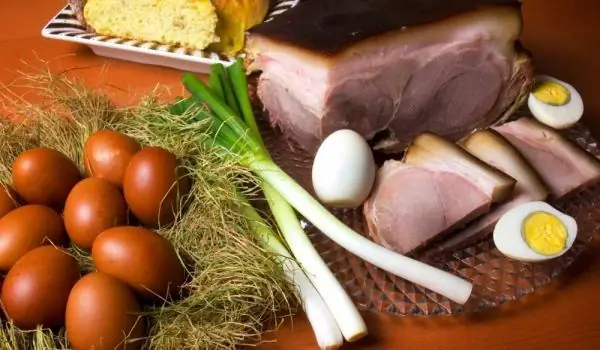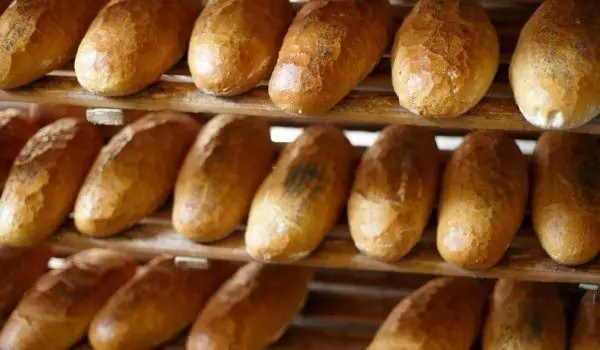2025 Author: Jasmine Walkman | [email protected]. Last modified: 2025-01-23 10:18
The Minister of Agriculture and Food, Professor Dimitar Grekov, stated at the forum in Pavlikeni School and Business - hand in hand, that there is no increase in the price of eggs and lamb before Easter.
"Production is sufficient. In the last week alone, more than 200 price inspections have been made in Sofia and the country. Active control will continue until Easter," the agriculture minister said.
The Minister is adamant that no speculation is expected with the prices around the holidays.

"I think that like all people before this holiday, we should open our souls, the prices should be satisfactory and normal for everyone, so that we can consume good and quality Bulgarian meat," the minister said.
Grekov added that every Bulgarian must choose what meat to eat around the holidays - domestic or imported.
At the same time, Associate Professor Bozhidar Ivanov from the Institute of Agrarian Economics said that the domestic market is rich in milk powder, and according to him, imports of milk powder and palm milk in recent years has tripled.
In 2012, 37,000 tons of milk powder were imported to Bulgaria, mainly from the European Union, which exceeds three times the import for 2005.

Imports are projected to remain at 30,000 despite falling international prices.
Ivanov claims that after 2007, accelerated growth of imports began not only in the dairy but also in other food industries. This reflects well on the Bulgarian market, because our agriculture cannot produce enough dairy products.
On the other hand, the local farmers are proud of the production of pink tomatoes and Smilyan beans, which were threatened with a ban at the beginning of the month.
In the end, the European Commission decided to spare Bulgarian crops by rejecting the project, which provided for the extinction of some local varieties and the free exchange of planting material between farmers.
Most MEPs voted against the directive, with the law passed by only 15 people.
Recommended:
They Check Eggs, Lamb And Easter Cakes En Masse For Easter

Massive thematic inspections in connection with the upcoming major Christian holiday Easter launched the Bulgarian Food Safety Agency. Experts from the Food Control Department will carry out unscheduled inspections at a number of outlets.
The Price Of Lamb Will Jump Just Before Easter

Just before the Easter holidays, resellers will inflate the prices of lamb. The news was announced by the chairman of the sheep breeders in Bulgaria Biser Chilingirov in front of Trud newspaper. The purchase of hams and whole lambs from Bulgarian farmers has already begun.
Inspections Of Eggs, Easter Cakes And Lamb Begin Before Easter

The joint inspections of the Bulgarian Food Safety Agency and the Consumer Protection Commission start before the Easter holidays. As of today, April 2, intensive inspections in the commercial network and online space of eggs, Easter cakes and lamb, which are traditionally present at the festive table, begin.
Intensified Inspections Of Eggs And Lamb Began Before Easter

In connection with the upcoming Easter holidays, the BFSA launched an action to inspect eggs and lamb, which are offered in retail chains and markets in our country. The news was announced by the Minister of Agriculture and Food Desislava Taneva to FOCUS Radio.
A New Rise In The Price Of Bread Is Expected

Domestic grain producers have announced that due to the record amount of rainfall that has poured over our country in recent months, it is possible that bread will rise in price by about 10 cents. Heavy rainfall, humidity and a lack of warmer temperatures in April and May have ruined much of this year's harvest.

